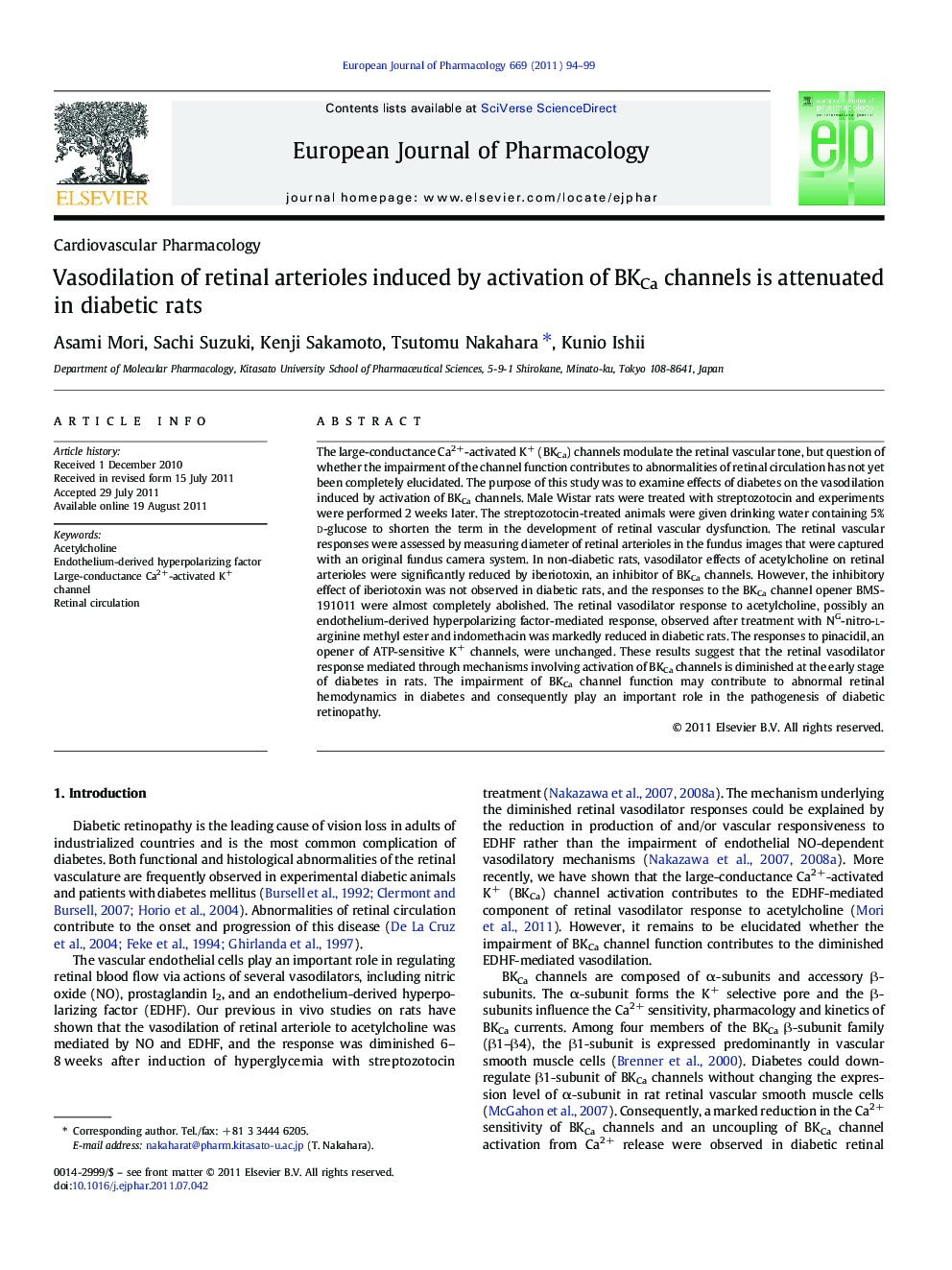| Article ID | Journal | Published Year | Pages | File Type |
|---|---|---|---|---|
| 5830156 | European Journal of Pharmacology | 2011 | 6 Pages |
The large-conductance Ca2+-activated K+ (BKCa) channels modulate the retinal vascular tone, but question of whether the impairment of the channel function contributes to abnormalities of retinal circulation has not yet been completely elucidated. The purpose of this study was to examine effects of diabetes on the vasodilation induced by activation of BKCa channels. Male Wistar rats were treated with streptozotocin and experiments were performed 2Â weeks later. The streptozotocin-treated animals were given drinking water containing 5% d-glucose to shorten the term in the development of retinal vascular dysfunction. The retinal vascular responses were assessed by measuring diameter of retinal arterioles in the fundus images that were captured with an original fundus camera system. In non-diabetic rats, vasodilator effects of acetylcholine on retinal arterioles were significantly reduced by iberiotoxin, an inhibitor of BKCa channels. However, the inhibitory effect of iberiotoxin was not observed in diabetic rats, and the responses to the BKCa channel opener BMS-191011 were almost completely abolished. The retinal vasodilator response to acetylcholine, possibly an endothelium-derived hyperpolarizing factor-mediated response, observed after treatment with NG-nitro-l-arginine methyl ester and indomethacin was markedly reduced in diabetic rats. The responses to pinacidil, an opener of ATP-sensitive K+ channels, were unchanged. These results suggest that the retinal vasodilator response mediated through mechanisms involving activation of BKCa channels is diminished at the early stage of diabetes in rats. The impairment of BKCa channel function may contribute to abnormal retinal hemodynamics in diabetes and consequently play an important role in the pathogenesis of diabetic retinopathy.
